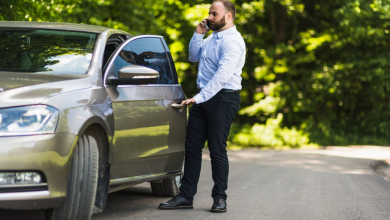
Many people may fantasise about buying a second home. Possibilities could range from owning a second home in the city or a holiday villa to an investment property to let out to tenants. If you ponder buying a second home in the UK, you need to weigh the costs, financing options, and accountabilities.
Second Home Financing Options
There are numerous financing options for buying a second home in the UK. The three most popular methods of financing a second house are paying cash, getting a mortgage, and leveraging equity. Let’s delve more into each of these three possibilities:
Cash
You might choose to pay cash if you have adequate savings to afford the cost of the property. In other words, you won’t have to make monthly mortgage payments because you would own the property. Additionally, a cash offer may close more quickly than one financed. However, using cash results in a sizable portion of your savings being invested in a single item.
Mortgage
A second choice is to obtain a second mortgage, where you borrow money from a lender and pay them back with interest over time. A second mortgage can be advantageous since it normally requires a lower down payment than a first mortgage and helps establish good credit when payments are made on time each month. There are negatives, though. Your second mortgage’s interest rate probably will be higher than your first one. Finally, how you intend to use the second home will determine the type of mortgage you obtain. For instance, you can only rent it out if you buy it as a vacation house after demonstrating that your other property is your primary residence. Alternatively, you must obtain a buy-to-let mortgage if you are purchasing a second house you want to rent out.
Equity
Utilising the equity you’ve accumulated in your house is a different option to come up with the funds needed for a deposit. You refinance your present mortgage rather than obtaining a second one. To free up the funds for a deposit, you will likely need to raise your mortgage by 25% to purchase a second house.
Things You Should Know When Buying a Second Home
Buying a Second Home may Require a Different Kind of Mortgage
There are three options when considering taking out a mortgage for a second home. You may need a standard mortgage if you are looking for a second residential property for your enjoyment. If you want to leave the property infrequently or only for short periods at peak times, you must opt for a holiday let mortgage. If you want to rent the property continuously, then a buy-to-let mortgage would be the best option. It is important to seek the advice of an independent mortgage broker who can assess your needs and find the most suitable mortgage.
You Need a Heavy Deposit
You must have enough cash to cover the amount required for a deposit when purchasing a second home, which is typically 15% of the property’s price but could be as much as 25% if you plan to rent it out. If you have enough equity in your current main home, you can use that to fund the deposit through remortgage. However, you must demonstrate your ability to cover the loan repayments. When taking on additional debt, you should ensure you can make the required payments or risk repossessing your property. On top of this, your income must show that you can finance a second property.
Stamp Duty is Higher on Second Homes
When buying a second home valued over £40,000, an additional 3% tax will be imposed on rate tiers in England and Northern Ireland. This charge, known as a Stamp Duty Land Tax, is higher in Scotland and Wales, where the cost is 4%. Rates are tiered based on a property’s value; for example, people buying their main home pay nothing on the first £125,000; second homeowners will pay 3% on that same tier. This does not apply to houseboats or caravans.
Wrapping Up
When financing your second home in the UK, it is important to consider the cost of the property, the mortgage interest rate, the amount of the down payment, and the length of the loan. Additionally, it is important to consider the tax implications of owning a property in the UK and the benefits of an offshore trust.




